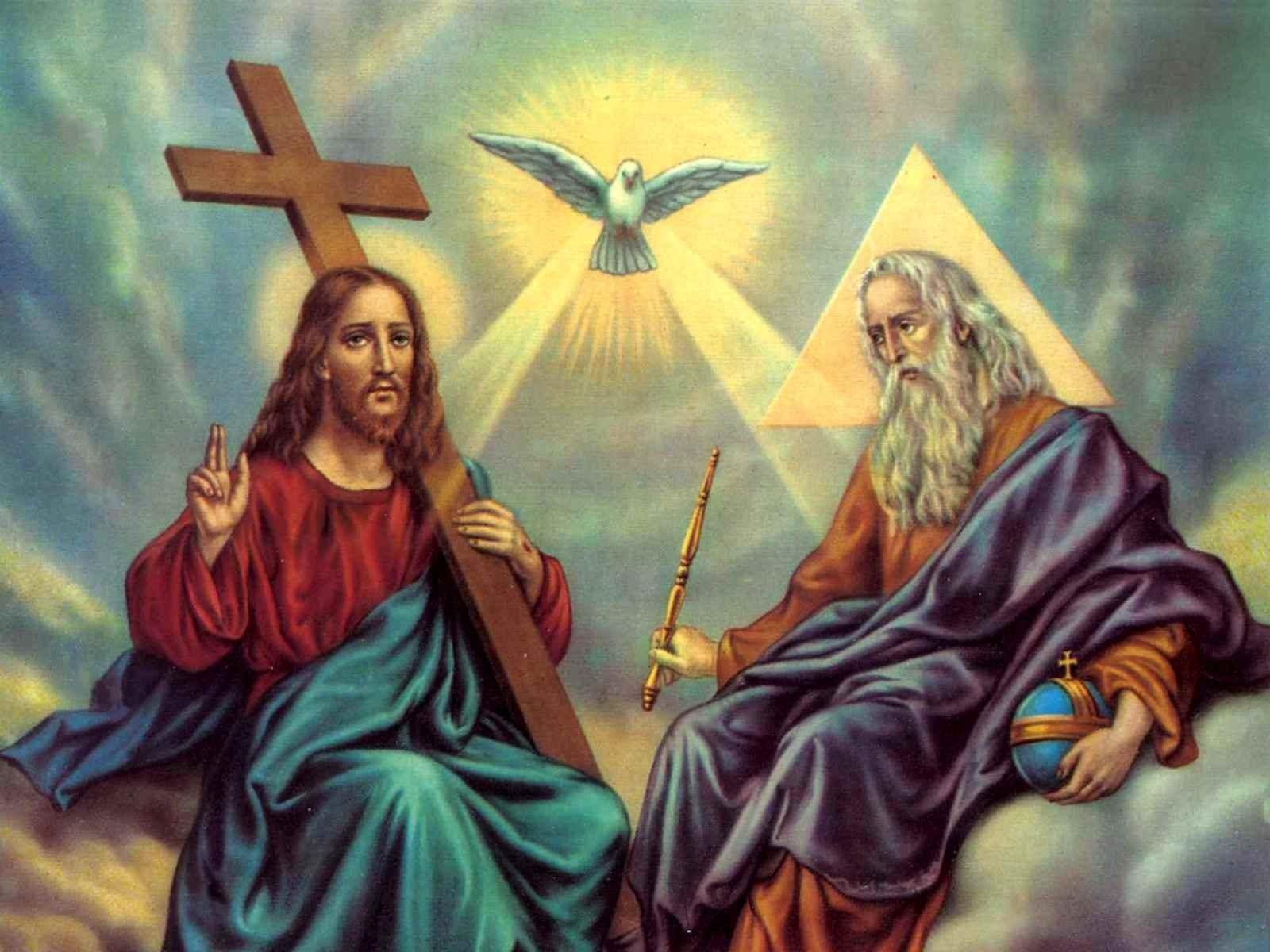A JOURNEY TO SPIRIT OF QURAN - CHAPTER 3

MY FAITH (MY IMAN)
A JOURNEY TO SPIRIT OF QURAN (RUH-UL-QURAN)
BY - ENGINEER NEYAZ AHMAD
CHAPTER 3: THE OPENING QURAN 1:2

[3.1] Islam is not a novel religion, but rather the eternal truth that God has communicated through His prophets to every community. In the Qur'an, God enlightens us:
Qur'an 2:256
"Let there be no compulsion in Religion: truth stands out clear from error: whoever rejects evil and believes in Allah (one God) has grasped the most trustworthy hand hold, that never breaks. and Allah hears, and knows all things."
[3.2] For one-fifth of the global population, Islam serves as a comprehensive way of life, guiding Muslims in every aspect of their existence from the moment of birth until death.
Qur'an 3:84
"Say: we believe in God and in what has been revealed to us, and what was revealed to Abraham, Isma'il: Isaac, Jacob and The Tribes, and in (the Books) given to Moses, Jesus and the Prophets, from their Lord: We make no distinction between one and another, among them, and to God do we bow our will (in Islam)."
[3.3] As Muslims, we bear the responsibility of conveying the message of Islam to others, presenting the evidence and facts, and inviting them to accept Islam based on understanding and conviction, leaving the choice to accept or deny it to the individual.
Qur'an 5:3
"This day I have perfected your Deen (Complete way of Life, Religion) for you, and completed my favor upon you, have chosen ISLAM as your Deen (way of life)."
At the very least, our hope is that by reading these articles, you will gain insight into what Muslims believe and why Islam is currently the fastest growing way of life on Earth.
[3.4] Let's proceed to the second verse of the Quran.
Quran 1:2
ٱلْحَمْدُ لِلَّهِ رَبِّ ٱلْعَـٰلَمِينَ ٢
"All praise and Thanks be to Allah s.w.t, the Lord (Rabb) of the worlds."
[3.5] Here, Allah s.w.t is instructing us on how to pray to Him by beginning with praise and gratitude, while also asserting His ownership over all that exists. The phrase "ٱلْعَٰلَمِينَ" is translated as "worlds." While some scholars interpret it as "universe," others translate it as "all that exists." However, the deeper meaning encompasses not only the physical universe, including the heavens and the earth, but also the realms of the afterlife such as Paradise (Jannah) and Hell (Jahim). In Christianity, Heaven and Hell are believed to be the destinations for the afterlife, with Heaven often associated with the visible sky. Yet, according to Islam, there are seven heavens layered one above the other, with each subsequent heaven enveloping the one below it, akin to a drop within an ocean.
[3.6] As previously discussed, the nature of this Surah is that of a prayer. The prayer commences with the praise of the One to whom our supplication is directed. This highlights the importance of offering prayers with dignity and reverence. It is unbecoming for a person of refinement to hastily present their requests. True refinement dictates that our petitions should be prefaced by a sincere acknowledgment of the unparalleled status, boundless benevolence, and unmatched excellence of the One we are addressing in our prayer.
[3.7] When we offer praise to someone, we do so for two fundamental reasons. Firstly, because excellence inherently warrants praise, regardless of whether that excellence directly affects us or not. Secondly, we praise someone whom we perceive as our benefactor; in such cases, our praise stems from a profound sense of gratitude. Allah s.w.t deserves praise on both accounts. It is our duty to praise Him not only in acknowledgment of His boundless excellence but also out of gratitude for the countless blessings He has bestowed upon us. It is crucial to emphasize that the praise is not merely directed towards Allah s.w.t, but that all praise is exclusively reserved for Him alone. Whenever we encounter beauty, excellence, or perfection—regardless of its form or manifestation—its ultimate source is none other than Allah s.w.t Himself.
[3.8] Absolutely. No created beings, whether humans, angels, demigods, or celestial bodies, possess innate excellence; any excellence they exhibit is bestowed upon them by Allah s.w.t. Therefore, if there is anyone deserving of our adoration and worship, to whom we owe gratitude and humility, and towards whom we should demonstrate obedience, it is the creator of excellence Himself, rather than those who merely possess it.
[3.9] In Arabic, the word "Rabb" encompasses three significant meanings: (i) Lord and Master; (ii) Sustainer, Provider, Supporter, Nourisher, and Guardian; and (iii) Sovereign, Ruler, He Who controls and directs. Allah s.w.t is the Rabb of the universe in all three senses of the term.
[3.10] Let's explore the second verse of the Tenakh/OT:
Genesis 1:2 (Tenakh/OT)
וְהָאָרֶץ הָיְתָה תֹהוּ וָבֹהוּ וְחֹשֶׁךְ עַל-פְּנֵיתְהוֹם וְרוּחַ אֱלֹהִים מְרַחֶפֶת עַל-פְּנֵי הַמָּיִ
"And the earth was formless and empty, and darkness was over the surface of the deep, and the Spirit of God was hovering over the surface of the waters."
[3.11] When I used Google Translate to render the verse word-for-word, it provided the following translation: "The land was a wonder, and behold, darkness lay upon the deep abyss, and the Spirit God was hovering over the water."
[3.12] This verse describes a moment during the creation of the Earth when it was surrounded by vast bodies of water in the darkness of the universe, with a divine spirit hovering over these waters. One can imagine these waters as immense oceans or seas, where the view is limited to water below and sky above, with nothing else in sight. The depiction of a spirit hovering over these waters evokes the image of a dove-like creature, symbolizing purity and peace. This imagery is reminiscent of another verse from the New Testament, Luke 3:22, which describes the Holy Spirit descending like a dove.


New International Version Luke 3:22
"And the Holy Spirit descended on him in bodily form like a dove. And a voice came from heaven: 'You are my Son, whom I love; with you I am well pleased.'"
[3.13] Therefore, it's not inaccurate to assert that Christians worship three entities—Father, Jesus, and the Dove— as illustrated in the image below. However, they claim that these three are not separate from the Trinity but rather different manifestations of the same God of Israel, known as Yahweh (YHWh).

[3.14] Jews and Christians hold the belief that the God they worship, as the Creator, possesses a Spirit akin to a human having a soul within them. However, Jews envision God as a solitary Spirit, singular and invisible. In contrast, Christians ascribe the title of Father to God, depicted as the elderly figure in the image above. Additionally, they perceive the Spirit (Dove) as a distinct entity, yet integral to the Father, serving as a partner to Yahweh (YHWh) within the Godhead. Some other religious faiths interpret the Spirit as the pure essence of God's attributes.
[3.15] To grasp the implications of this verse in Jewish and Christian contexts and juxtapose it with Islamic teachings, it's crucial to delve into the Islamic understanding of the concept of "Spirit."
[3.16] In Islam, the concept of the Spirit differs from that in Judaism and Christianity. In Islamic doctrine, the Spirit, known as "Ruh" in Arabic, is not considered a separate being or entity from Allah (God). Rather, it is understood as one of the divine attributes of Allah, often associated with His creative power and the source of life. The Spirit is not viewed as a distinct personality or partner to Allah, but rather as an expression of His omnipotence and presence in the universe. This understanding aligns with the broader Islamic principle of Tawhid, or the Oneness of Allah, which emphasizes the indivisible unity and sovereignty of God. Therefore, while the term "Spirit" may appear in both Islamic and Judeo-Christian texts, its theological significance and interpretation vary significantly across these religious traditions.
[3.17] In Islam, the term "Spirit" encompasses various meanings, each with its own significance depending on the context in which it is used in Quranic verses. However, some of these meanings overlap with interpretations found in Jewish and Christian beliefs. It's important to discern these definitions to understand the nuanced differences in theological perspectives. Here are the key definitions of "Spirit": An invisible entity endowed with the awareness to discern truth from falsehood.
[3.18] In Islamic theology, from the outset, THREE types of beings possess this capacity for conscious thought.
[3.19] TYPE 1: Angels are indeed acknowledged across various religious traditions, including Judaism, Christianity, and Islam. However, the specific details regarding their creation, appearance, qualities, sustenance, and mortality vary among these faiths. In Islam, comprehensive information about angels is provided in the Quran and Hadith, offering insights into their nature, purpose, and role in the universe. While other religions may also hold beliefs about angels, the level of detail and theological significance attributed to them may differ. As far as what I understood so far about the Jewish/Christian faith, I think they believe Angels are immortals subjected to live eternal since their creation.
[3.20] In Islam, angels are brought into existence by the light of Allah s.w.t without any gender. Each angel is uniquely created, unrelated by blood to any other. Their sustenance comes from constant praise of Allah s.w.t 24/7 365 days, a ceaseless devotion that spans every moment of every day. Their primary purpose is unwavering obedience to Allah s.w.t. Like humans, angels possess the capacity for thought, and they too are subject to mortality, perishing only by the decree of Allah. It is widely held in Islamic belief that no angel has perished since their creation, except for two notable exceptions, Haroot and Maroot, whose tale will be discussed later. Allah s.w.t has appointed four angels as archangels, signifying the loftiest status among all angels. In Jewish tradition, Yahweh is said to have designated seven angels as archangels, with three overlapping those recognized in Islamic doctrine.
[3.21] In Islam, the renowned angels are Jibril (Gabriel), Mekail (Michael), Azrael (Azrael), and Israfil (Raphael). Of these, Jibril, Mekail, and Israfil are also recognized as archangels in Jewish tradition, while Azrael, known as the Angel of Death, holds a distinct role. Additionally, Jewish tradition identifies four more archangels beyond these common figures.
[3.22] In Islamic tradition, Jibril (Gabriel) is referred to as Ruh-ul-Quddus, meaning the Holy Spirit or Holy Soul, by Allah. In Jewish tradition, the Holy Spirit is known as ruaḥ ha-qodesh. Azrael (Azrael) in Islam is recognized as the Angel of Death, responsible for extracting souls from living beings at the time of death. While the roles of these angels are similar across Abrahamic religions, the concept of the Holy Spirit differs in Christianity, where it is often associated with the dove and considered a part of God. It's notable that Jewish and Islamic beliefs align on the definition of the Holy Spirit as distinct from the Christian interpretation.
[3.23] This is how Jewish tradition defines the Holy Spirit, according to the Tenakh.
[3.24] According to Jewish tradition, the Holy Spirit, referred to as ruaḥ ha-qodesh, is closely linked with the divine essence of God's spirit. It serves as a conduit for inspiration, prophecy, and guidance, particularly to the prophets and those who lead righteous lives. This manifestation of God's power and wisdom empowers individuals to comprehend and carry out divine purposes.
[3.25] The Hebrew phrase ruach ha-kodesh (רוח הקודש, "holy spirit," also transliterated as ruaḥ ha-qodesh) appears in the Hebrew Bible and Jewish texts to denote the spirit of YHWH (רוח יהוה). Additionally, the Hebrew expressions ruacḥ qodshəka, "thy holy spirit" (רוּחַ קָדְשְׁךָ), and ruacḥ qodshō, "his holy spirit" (רוּחַ קָדְשׁוֹ), are also used (with the definite article ha omitted when a possessive suffix is added).
[3.26] The concept of the Holy Spirit in Judaism typically pertains to the divine attributes of prophecy and wisdom. It encompasses the divine power, essence, and influence of the Most High God, whether over the universe as a whole or over His creations, depending on the context in which it is discussed.
[3.27] This is how Islamic tradition defines the Holy Spirit, according to the Quran.
[3.28] In Islamic tradition, the Holy Spirit, known as Ruh al-Qudus (Arabic: روح القدس), is regarded as a divine entity closely associated with the guidance, revelation, and inspiration provided to prophets and righteous individuals. It is considered a manifestation of Allah's wisdom and power, facilitating understanding of divine will and enabling the fulfillment of spiritual purposes.
[3.29] The Holy Spirit, referred to as Ruh al-Quddus in Arabic, is mentioned in the Qur'an four times, where it serves as a conduit for divine action or communication. The Islamic understanding of the Holy Spirit aligns closely with interpretations found in the Old and New Testaments. Some Muslims, based on certain Hadith narrations, equate the Holy Spirit with the angel Gabriel (Jibrāʾīl in Arabic). The Spirit (al-Ruh, without the descriptor "holy" or "exalted") is depicted as the creative force from Allah through which Adam was given life, and as the source of inspiration for Allah's messengers and prophets, including Jesus and Abraham. Islam strictly prohibits the belief in a Holy Trinity or any notion of God's duality, considering it the gravest form of blasphemy. Both Judaism and Islam share similar pronunciations and conceptual understandings of the Holy Spirit, while Christianity diverges by incorporating the Holy Spirit as one of the three persons of the Godhead.
[3.30] Let's revisit the last verse from the viewpoints of Judaism, Christianity, and Islam. The Hebrew Bible (Tenakh) reads: "And the spirit of God hovered over the waters." (Genesis 1:2)
Genesis 1:2 (Jews)
The earth was without form, and void; and darkness was on the face of the deep. And the Spirit ruaḥ ha-qodesh of YHWH was hovering over the face of the waters. From the Jewish perspective: This verse signifies the divine presence of God's spirit overseeing the creation of the world, conveying the idea of divine power and wisdom at work in the act of creation.
Genesis 1:2 (Christians)
The earth was without form, and void; and darkness was on the face of the deep. And the Spirit Dove of Father God was hovering over the face of the waters. The Christian interpretation: Christians view this verse as foreshadowing the role of the Holy Spirit in the act of creation, emphasizing the divine aspect of the Trinity's involvement in the world's formation.
Genesis 1:2 (Muslims)
The earth was without form, and void; and darkness was on the face of the deep. And the Spirit Ruh al-Quddus Angel Jibril a.s of Allah s.w.t was hovering over the face of the waters. From the Islamic perspective: In Islam, this verse is understood as part of the general narrative of creation, where Allah's spirit (Ruh) is depicted as a divine agent overseeing the initial stages of creation, bringing order to the chaos of the universe.
[3.31] Type 2: Demons, or Jinn in Islamic doctrine, constitute another category of spiritual beings with diverse interpretations across religious traditions. According to Islam, Jinn are created from smokeless fire by Allah s.w.t and possess both male and female genders. They inhabit a world similar to that of humans, and the Quran devotes an entire chapter, named Jinn, to discuss their nature and characteristics.
[3.32] Jinn, also known as djinn or genies, are invisible beings that feature prominently in pre-Islamic Arabian religion and later Islamic culture and beliefs. Similar to humans, they are accountable for their actions and can be categorized as believers (Muslims) or disbelievers (kafir) based on their acceptance of God's guidance. In Islamic theology, jinn are neither inherently good nor inherently evil, allowing for their incorporation from other religious traditions as Islam spread. However, Islam emphasizes a strict monotheism and the concept of tawhid (oneness of God), rejecting any association between jinn and divinity and placing them on a parallel level with humans, subject to God's judgment and the afterlife. The Quran explicitly condemns the pre-Islamic Arabian practice of worshiping or seeking protection from jinn.
[3.33] While typically invisible, jinn are believed to possess subtle bodies that can change shape at will. They often assume forms resembling snakes but may also appear as scorpions, lizards, or even humans. According to folklore, jinn may engage in sexual relations with humans, resulting in offspring known as Muraghiboon. When harmed by someone, jinn are said to seek revenge or possess the assailant's body until expelled through exorcism. Although they generally avoid involvement in human affairs, preferring to live in tribes similar to those of pre-Islamic Arabian society, jinn remain a significant aspect of Islamic cosmology and folklore.
[3.34] Individual jinn are often depicted on charms and talismans, where they are invoked for protection or magical assistance, usually under the leadership of a king figure. Many individuals who believe in jinn wear amulets as a safeguard against potential harm from jinn, which are sometimes believed to be dispatched by sorcerers and witches. A widespread belief suggests that jinn are unable to harm individuals who wear items inscribed with the name of God. While historical Muslim scholars held varied attitudes towards jinn, modern Islamic scholarship tends to associate belief in jinn with idolatry.
[3.35] In Jewish tradition, demons are referred to as Shedim. Shedim (Hebrew: שֵׁדִים; singular: שֵׁד Sheyd) are spirits or demons in the Tenakh and Jewish mythology. However, Shedim do not exactly align with the modern concept of demons as evil entities originating in Christianity. While evil spirits were believed to cause maladies, Shedim were conceptually distinct from them. Shedim were not seen as evil demigods, but rather as the gods of foreigners, and they were considered evil only in the sense that they were not God.
[3.36] It would seem that the reference to Shedim in the Tenakh is quite limited, with only two verses mentioning them as follows
Deuteronomy 32:17
יִזְבְּח֗וּ לַשֵּׁדִים֙ לֹ֣א אֱלֹ֔הַּ אֱלֹהִ֖ים לֹ֣א יְדָע֑וּם חֲדָשִׁים֙ מִקָּרֹ֣ב בָּ֔אוּ לֹ֥א שְׂעָר֖וּם אֲבֹֽתֵיכֶֽם:
"They sacrifice to demons, not God, to gods they had not known, to newly arrived gods, which your fathers did not fear."
Tehillim (Psalms), 106:35-39
"35. And they mingled with the nations and learned their deeds. 36. They worshiped their idols, which became a snare for them. 37. They slaughtered their sons and daughters to the demons (Shedim). 38. They shed innocent blood, the blood of their sons and daughters whom they slaughtered to the idols of Canaan, and the land became polluted with the blood. 39. And they became unclean through their deeds, and they went astray with their acts."
[3.37] It seems that Shedim are mentioned only twice in the Tenakh, and in both instances, they appear in the plural form. These references occur in Deuteronomy 32:17 and Psalm 106:37, where the context involves child or animal sacrifice. The word Shedim is traditionally thought to derive from the root šwd (Hebrew: שוד shûd), which conveys the notion of "acting with violence" or "laying waste." However, it's also possible that it was borrowed from Akkadian, where the term shedu referred to a spirit that could be either protective or malevolent. When Hebrew texts were translated into Greek, influenced by Zoroastrian dualism, Shedim was rendered into Greek as daimonia, carrying negative connotations. In later Judeo-Islamic culture, shedim became the Hebrew term for Jinn, reflecting the morally ambivalent nature of these beings.
[3.38] In Christian belief, demons are often referred to as evil spirits or unclean spirits. These entities are considered malevolent beings associated with Satan and are depicted as agents of spiritual corruption and temptation. They are believed to possess individuals, cause illness, and lead people astray from the path of righteousness. The term "demon" is derived from the Greek word "daimon," which originally denoted a divine or spiritual power but later came to be associated with malevolent entities in Christian theology.
[3.39] In English translations of the Bible, "unclean spirit" is a common rendering of the Greek phrase "pneuma akatharton" (πνεῦμα ἀκάθαρτον), which can also appear in its plural form as "pneumata akatharta" (πνεύματα ἀκάθαρτα). This phrase is used to describe malevolent spiritual entities, often associated with impurity or moral corruption. It corresponds to the Hebrew term "ruaḥ tum'ah" (רוּחַ טוּמְאָה) found in the Septuagint, which carries a similar connotation of spiritual uncleanness or impurity.
[3.40] The Greek term "pneuma akatharton" appears 21 times in the New Testament, primarily in the context of describing demonic possession. It is translated into English as "unclean spirit," "spirit of impurity," or simply "evil spirit." The Latin equivalent is "spiritus immundus."
[3.41] The connection between physical and spiritual cleanliness persists across cultures and throughout history. In the Christian context, the notion that virtue is tied to physical cleanliness and freedom from sin remains prevalent. While some scholars distinguish between "unclean spirit," "evil spirit" (pneuma ponêron), and "demon" (daimonion), the prevailing belief in the Christian world is that these entities are not a separate kind of creature like Jews and Muslims commonly believe of Shedim and Jinn but rather angels who rebelled against God and were cast down to Earth as fallen angels.
[3.42] Fallen angels, while not explicitly referred to by that term in Abrahamic religious texts, are commonly understood as angels who were expelled from heaven due to sin or rebellion against God. These angels, sometimes depicted as tempting humans to sin, are believed to have lost their heavenly status and are no longer in communion with God.
[3.43] The concept of fallen angels finds its roots in various ancient texts and interpretations. In the Book of Enoch (Book of Idris a.s, a book that got dropped out of Tenakh and Bible Old Testaments with a common belief that it got so much corruption that fails the concepts on logical grounds), a Jewish apocalyptic work, and in some interpretations of Genesis 6:1–4, the "sons of God" are considered to be fallen angels. During the Second Temple period, these fallen angels were believed to have engaged in illicit unions with human women (possibly an offspring of Jinn and Human Woman called Muraghiboon), resulting in monstrous offspring known as the Nephilim. This narrative attributes the Great Deluge to purge the world of these creatures, although their souls were believed to continue existing as demons. However, Rabbinic Judaism and Christian authorities later rejected these writings and the notion of angel-human hybrids. In Christian theology, fallen angels are often associated with Lucifer's rebellion against God, equating them with demons.
[3.44] In Islam, the belief in fallen angels is a matter of interpretation and debate. Early Quranic exegesis presents two main viewpoints regarding the obedience of angels, often centering on the character of Iblis (Satan in Islam). According to one perspective, Iblis was the progenitor of the jinn, created from fire. To refute the possibility of fallen angels, some scholars interpret the verse in Surah 18:50, "except Iblis, he was one of the jinn," to mean "he was one of the inhabitants of paradise." However, within Islamic tradition, the concept of fallen angels is generally accepted for only two angels, Haroot and Maroot, a topic that will be discussed later.
[3.45] Scholars have debated whether the jinns described in the Quran are equivalent to the biblical fallen angels. While the various types of spirits in Islamic texts can sometimes be challenging to distinguish, jinns in Islamic traditions appear to have distinct characteristics from fallen angels. In classical Islamic teachings, jinns are often viewed as a race of beings predating Adam, dwelling on earth. However, their ethereal nature, similar to the Christian concept of fallen angels, allows them to ascend to heaven to acquire knowledge, which they then impart to soothsayers. This notion also aligns with the Greek concept of Daimon. The Quran also mentions the idea of jinns attempting to ascend to heaven.
Feel free to leave me a comment at the email below.
Email: myimanonline@gmail.com
Should you wish to help me accomplish this mission of creating comparative study in full, please visit www.Starknots.com (Right Click and open in new tab) for various products and services.



